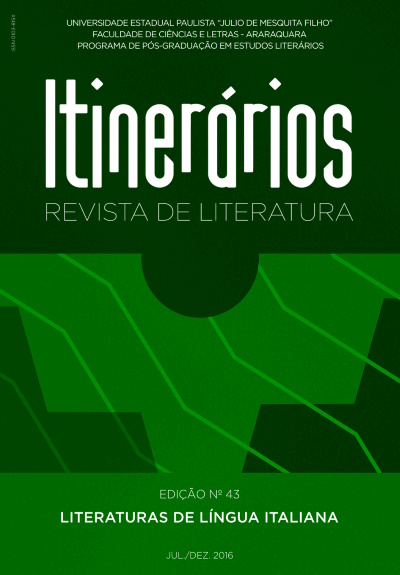Death as portrayed in Ultime lettere di Jacopo Ortis: a look at the foscolian materialism
DOI:
https://doi.org/10.58943/irl.vi43.9735Keywords:
Ultime lettere di Jacopo Ortis, Death, Materialism, Lucretius,Abstract
Ugo Foscolo (1778-1827) was already well known in Italy when he wrote his epistolary novel Utilme lettere di Jacopo Ortis (1802-1817); this was the piece, nonetheless, which would end up immortalizing him. Within this novel, Foscolo portrays the intricate period in which Italy, marked by the Napoleonic government, was inserted – reflecting thereby upon themes such as the human condition, the value of the classics, the necessity of a national ideal, friendship, and love. Death permeates such issues, and it consists in the specific focus of this study – as we aim at verifying Foscolo’s materialism under the light of Lucretius’ atomist philosophy. A brief parallel between Foscolo and the historic context is primarily traced, as a necessary path for one to access how death is addressed within the novel; afterwards, how such death is therein represented is also discussed. At a final moment, the focus shifts to the manner of how Foscolian materialism is related to Lucretius’ philosophic doctrine (1st century B.C.), which might be visualized in the poem De rerum natura. The research corpus comprises the letters from October the 11th, 13th, and 26th, November the 12th and 20th, and December the 11th, 1797; May the 13th, 1798; and March the 5th, 14th, and 25th, 1799.
Downloads
Published
Issue
Section
License
Os manuscritos aceitos e publicados são de propriedade da revista Itinerários. É vedada a submissão integral ou parcial do manuscrito a qualquer outro periódico. A responsabilidade do conteúdo dos artigos é exclusiva dos autores. É vedada a tradução para outro idioma sem a autorização escrita do Editor ouvida a Comissão Editorial.

